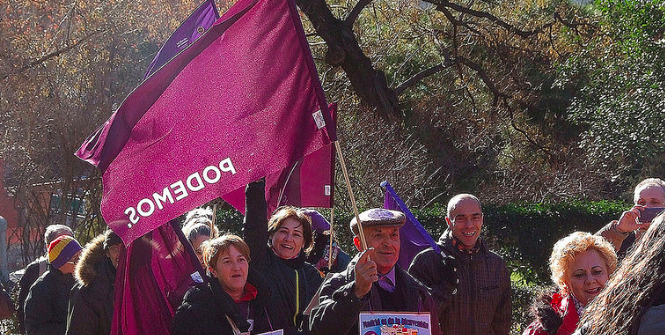Spain: A New Left-Wing Political Cycle?

The recent local and regional elections held on May 24 in Spain have shown that the ruling right wing People’s Party has a reason to fear as Spain turns away from austerity, the right and major political parties.
Both the local and regional elections held on Sunday May 24th in Spain suggest an earthquake has shaken the country’s political life. The governing right-wing party, People’s Party (PP), lost more than two million votes, and in all likelihood will be unseated from most of the regions and capitals of Spain. Notwithstanding the Spanish Socialist Workers’ Party (PSOE) has lost 700,000 votes, it remains the main left-wing political force and may rule in most of those regions and capitals, if political agreements with Podemos – the new political force of the “outraged” left which emerged from protests and social movements – are achieved. This party’s powerful breakthrough has been less successful than expected, as it remains far less popular than the Socialist Party, which Podemos had attempted to oust. Similarly, centre-right wins went to a new party originating in Catalonia, Ciudadanos, which might be the key to form governing majorities in some regions and local governments, though to a lesser extent than forecasted in the polls.
In light of this scenario some conclusions can be drawn. Spain has turned back to the left because citizens have sent clear messages demanding change.They are fed up with corruption, persistently associated with the People’s Party. They are fed up that the crisis is paid for by the poor, and that inequality grows while the wealthy pay few taxes and become richer. They also want public services such as health and education, which form the basis of their hard-fought welfare state, from worsening.
The voters of Spain have not opted for absolute majorities, and have rejected the two-party system in force in Spain between PP and PSOE. With their votes, they have created a more pluralistic and open scenario of four main parties seeking political alliances in order to govern. In 2007, PP and PSOE accounted for 70.5% of the total votes. In these elections they have polled just 52%.
Only time will determine the continuity of this trend. However, what seems certain is that the Spanish political scene has changed and, for the moment, agreements in different directions prevail. Most likely, such alliances will not lead to coalition governments but “investiture agreements”, meaning to allow the best situated, either within the left or the right, to govern. In some cases, this will be the PSOE and Podemos. In others, PP and Ciudadanos. Discussions between the political parties to come to agreements are beginning and, as always in politics, reality is slippery and complex and many unforeseeable events may take place.
Heading towards the general elections in the fall of this year, the results of May 24th are extremely significant. In the history of Spanish democracy, no elections have been won without a prior and solid local or regional establishment. If the left is able to govern in a majority of regions and cities, it will have more opportunity of reaching the Spanish Government later this year. PP’s right-wing is in crisis as a result of both the electoral defeat, and because just 5% of the 18-24 age group votes for them. On the other hand, the left-wing should not forget Spanish citizens’ desire for serious systemic changes, not breakups, nor radical ideologies, which might damage the nations’s exit from the crisis and give a new boost to a right that has been knocked down. Ultimately, until knowing the results of the next general elections, local and regional agreements will have a very provisional nature. However, there is no doubt Spain has turned left.
Nicolás Sartorius is Executive Vice President of Fundación Alternativas, a progressive think tank in Spain. This article can be republished with attribution under a Creative Commons Licence.





